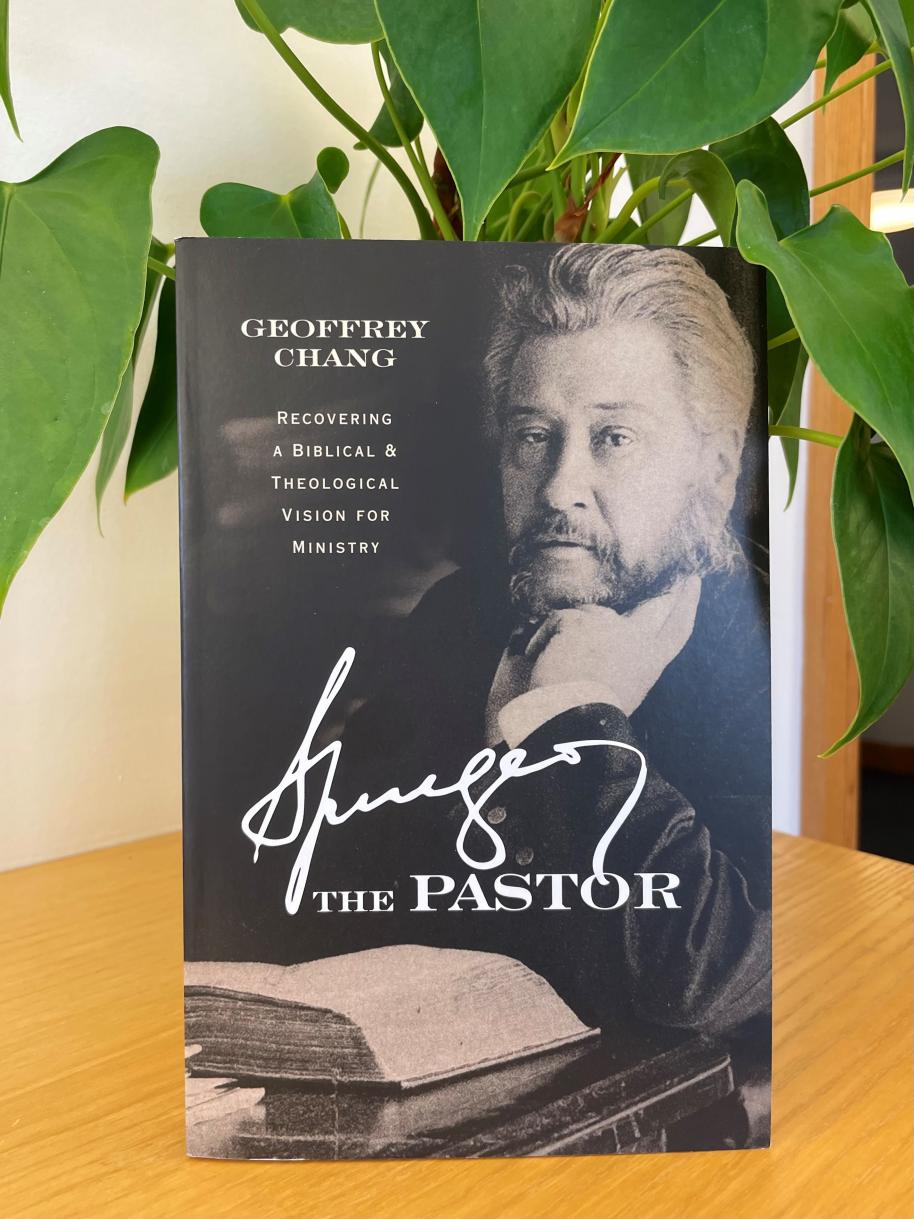Let's Read: Reflections on Spurgeon the Pastor by Geoff Chang

Reflections on Spurgeon the Pastor
Editor's Note: We are thankful to Geoff Chang for his book and the many ways we have been challenged and encouraged as we have read it together. We're also thankful to him for writing the final blog of this series. Geoff Chang is the Assistant Professor of Historical Theology at Midwestern Seminary & Curator of the Spurgeon Library.
By Geoff Chang
I’m grateful to the Irish Baptist College and Davy Ellison for organizing Let’s Read and using Spurgeon the Pastor. A pastor recently asked me how we could ever hope to implement the kinds of structures that Spurgeon put in place in his large church. I answered with two thoughts: First, my goal was never that we would try to emulate Spurgeon’s structures. Rather, I tried to make clear that behind those structures were ecclesiological convictions derived from Scripture and found in the Reformed and Baptist traditions. And it's those convictions that should drive us, however we put them into practice.
The other point I made was that Spurgeon held to his convictions, even when their corresponding structures became more and more burdensome. In other words, his church practices were not about convenience but conviction. One great example of this was his rigorous membership process, which he prioritized because of his belief in regenerate church membership. And yet, he maintained that process even when there were hundreds coming forward for membership each month. Another example was his commitment to congregationalism. With so many people joining, the church had to figure out a way to have more members’ meetings to properly conduct the business of the church.
So, if you are facing difficulties and inconveniences in implementing ecclesiological convictions, know that you’re not alone! And yet, be encouraged by Spurgeon’s example of faithfulness even amid a difficult context.
Since writing that book, my research on Spurgeon’s ecclesiology and pastoral ministry has continued, and I remain encouraged by his example of convictional faithfulness. We recently received an original letter for our collection here at the Spurgeon Library in Kansas City, MO. The letter is from Spurgeon to his elders, and he is giving a report on conversations he’s had with men in the church about potentially serving on the elder board. Spurgeon writes,
Dear friends,
In reference to brethren whom I was to see about the eldership, I have to report as follows:
Brother Bantick is very grateful for the good opinion of the brethren & would gladly do all in his power but business so occupies him that he cannot fulfill the duties of the office & therefore declines.
Brother Hayles had a stroke of paralysis on the brain a few days ago & therefore cannot be expected to undertake the work.
Brother S. Johnson cannot take Wednesday evening work as it is his class night, but in any other way, he will act with us & I believe he will be a most efficient worker. We may heartily recommend him to the Church.
Brother Stubbs can undertake the work & is quite willing to do so. He will, I trust, prove to be a helpful brother.
Brother Woolacott in the kindest manner declines on account of the distance at which he resides & his business engagements.
Brother Wigney to my great regret feels that his class demands all his time & that he could not fulfill elder’s duties.
We have these, dear brethren, need to look round again.
Yours ever truly,
C.H. Spurgeon
Several observations strike me about this letter. As busy as Spurgeon was, he wasn’t too busy to be involved in finding and evaluating future elders in his church. He was the one assigned by the elders to go around and interview these six men in the church to see if they would be interested in serving as elders. Clearly, Spurgeon played a role in the formation of the eldership each year.
Additionally, there was a high view of the eldership at the Metropolitan Tabernacle. The men who were being interviewed were all actively involved in the ministry of the church. Several of them led a Bible class, which would have been like a small group or an adult Sunday School class in our day. All the men interviewed seem to understand the weighty calling of the eldership. Perhaps, as a result, four out of the six declined to serve, much to Spurgeon’s disappointment.
With only two men accepting, Spurgeon says to his elders, “need to look round again.” In other words, Spurgeon understood that, without elders alongside him, he could not do the work of leading and shepherding the church. He needed more elders raised up.
What Spurgeon felt back in the 19th century is what we feel in our churches today. We long to see men equipped to minister God’s Word and shepherd His people faithfully. That’s why I wrote Spurgeon the Pastor, so that we might have one more encouragement and model of a pastor who sought to care for his church well. May the Lord be pleased to raise up faithful shepherds for the glory of Christ and the joy of His church.





